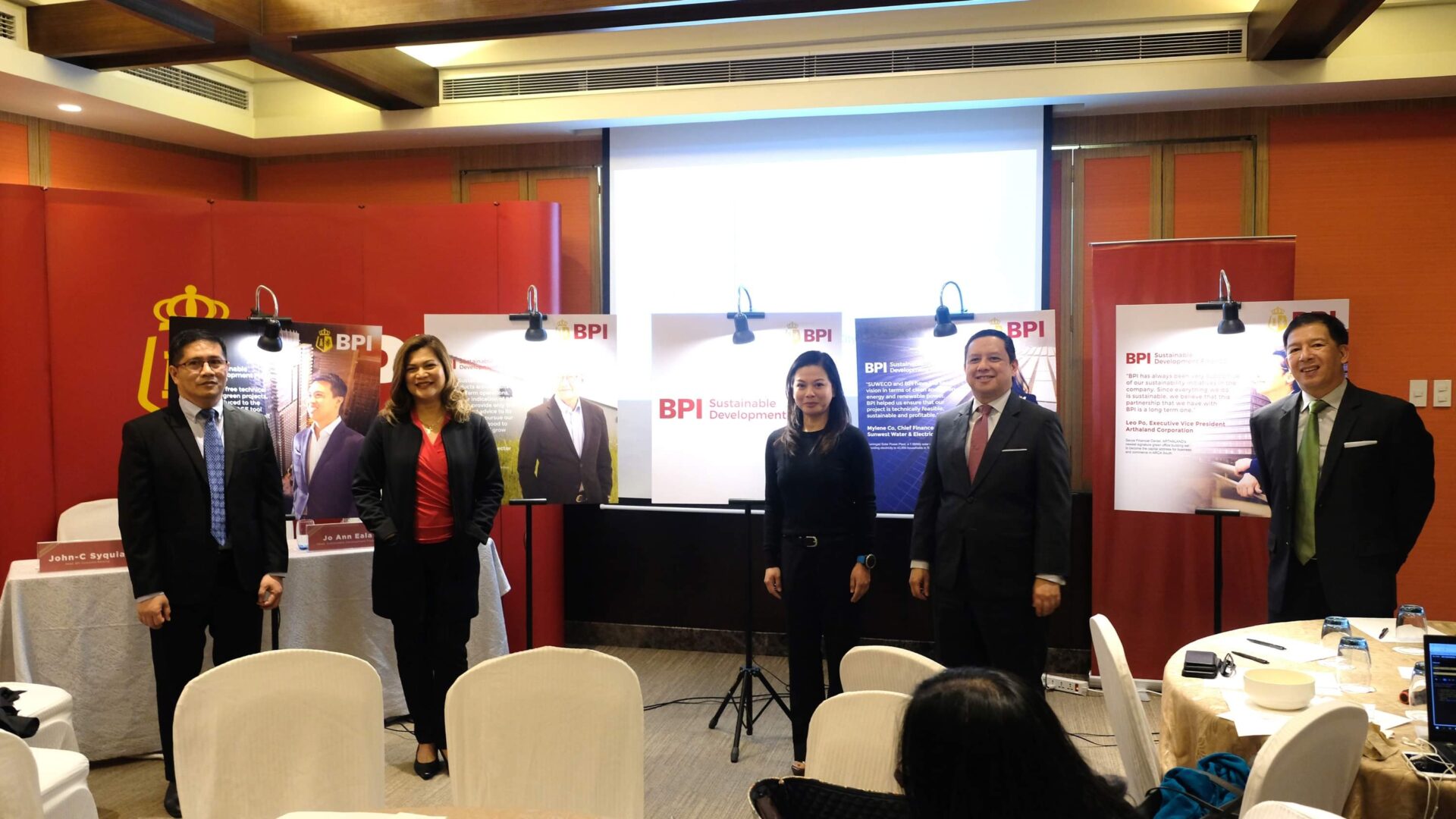Bank of the Philippine Islands (BPI) have been recognized by the Asset Magazine and the Alpha Southeast Asia as one of the most sustainable financial institutions in the region that champions market and environment sustainability through its banking activities.
In the Asset ESG Corporate Awards 2019 of the Asset Magazine, BPI was given an award for being the Highly Commended Bank in Environmental Responsibility, citing BPI’s Sustainable Energy Finance (SEF) Program, now called Sustainable Development Finance (SDF), which helps finance green projects for the private sector.
For its part, the Marquee Awards of Alpha Southeast Asia Deal & Solution Awards measured BPI’s contributions to its clients and markets that made 2019 a standout year for the Bank, making it the Best Sustainable Finance House in the country.

Jo Ann Eala, Head of BPI Sustainable Development Finance, said BPI’s programs have integrated sustainability in its clients’ business models for energy efficiency, renewable energy, and climate resilience projects, harnessing its experience as the pioneer and one of the leading banks in sustainability in the Philippines since 2008.
“We are happy that our sustainable banking efforts have been recognized by industry leaders and influencers. What makes the BPI SEF Program sustainable is our clear business model and mantra to ‘turn business green to gold.’ By ensuring that sustainability projects of clients comply with IFC standards to achieve energy, water, and materials savings, as well as lower greenhouse gas (GHG) emissions, our clients are able to achieve overall project success and profitability,” said Ms. Eala.
In partnership with IFC of the World Bank Group, BPI introduced sustainable energy and climate finance in the Philippines in 2008. The bank has continued to lead in both number of projects funded and portfolio size, with 333 sustainable energy projects funded and loans reaching over Php 133 Billion as of June 2019.
BPI has recognized the fact that shifting to sustainable business practices may be perceived as costly for SMEs. It has therefore provided technical consultations and advisory services free of charge to SMEs who cannot afford to set up their own engineering teams.
“It is not enough to comply with laws and corporate social responsibility targets. It is imperative that the sustainability projects actually make money. In short, it is not enough that the project is green, it needs to yield gold. It needs to be successful and profitable to be sustainable,” Eala said.
As result of these efforts, BPI’s program has been showcased in several Green Finance, Renewable Energy, Energy Efficiency, and other Responsible Finance conferences in the Philippines and abroad. BPI belongs to the Ayala Group of Companies who has adopted sustainability in the conduct of its business—a commitment that started in the 1980s and has continued to the present.
BPI’s new Sustainable Development Finance (SDF) program expands bank’s green finance initiatives and bolsters the bank’s commitment to enable sustainable businesses in the country and contribute to the UN Sustainable Development Goals (UN SDGs). With SDF, BPI has consolidated its financing activities beyond renewable energy, energy efficiency and climate resilience and included sustainable agriculture, in response to the increasing need to adopt more efficient and climate-ready food production processes that will help the country achieve lower cost of food production as well as food security.
The Asset ESG Corporate Awards and the Alpha Southeast Asia cited BPI as one of the most sustainable financial institutions in the region, as it champions market and environment sustainability through its program in Sustainable Energy Finance (SEF), now called Sustainable Development Finance (SDF).



